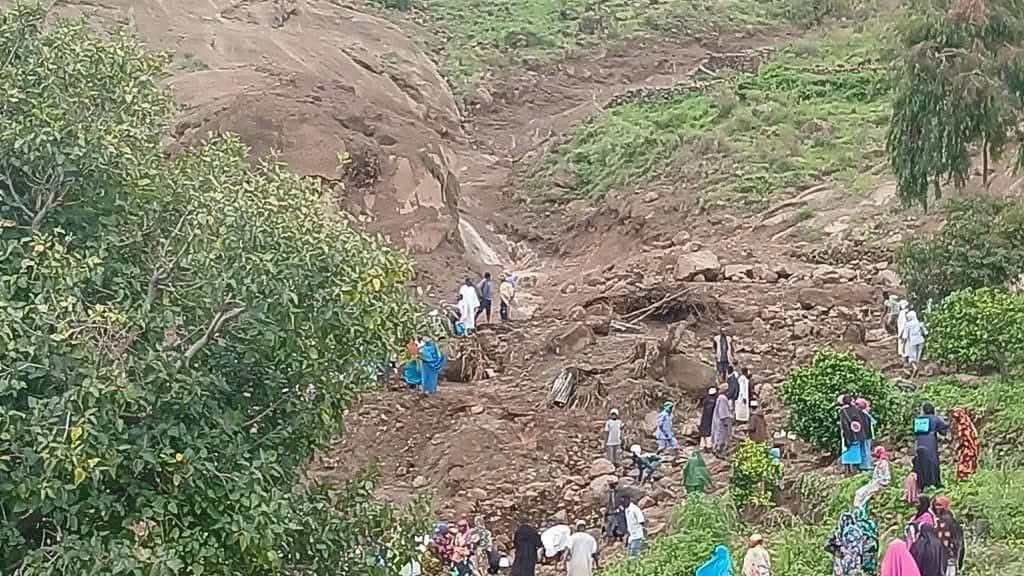A devastating landslide in western Sudan’s Marra Mountains has killed at least 1,000 people, according to the rebel group Sudan Liberation Movement/Army (SLM/A). The disaster struck the village of Tarasin on Sunday after days of heavy rain, leaving only one survivor and “leveling” much of the community, the group said in a statement.
The SLM/A has called for urgent humanitarian assistance from the United Nations and other regional and international organizations to help the survivors and address the growing crisis.
Many of the victims were residents who had fled North Darfur state to the Marra Mountains to escape ongoing conflict between the Sudanese army and the paramilitary Rapid Support Forces (RSF). The civil war, which erupted in April 2023, has caused widespread famine and displacement, particularly in the western Darfur region.
Darfur’s army-aligned governor, Minni Minnawi, described the landslide as a “humanitarian tragedy,” emphasizing the scale of the disaster in an area already devastated by conflict.
The civil war has claimed a heavy toll. While estimates vary, a U.S. official last year put the death toll at up to 150,000 since hostilities began, with around 12 million people displaced from their homes. The war has also drawn accusations of genocide, particularly in Darfur, where ethnic tensions have intensified amid the fighting.
Factions of the Sudan Liberation Movement/Army, which control the affected area, have pledged to continue fighting alongside the Sudanese military against the RSF. Many residents of Darfur accuse the RSF and allied militias of attempting to reshape the ethnically mixed region into an Arab-dominated territory, a claim that has fueled local tensions.
The landslide underscores the dire humanitarian situation in Sudan, where conflict and extreme weather events have compounded an already fragile crisis. Relief agencies face immense challenges reaching remote mountain communities like Tarasin, where infrastructure is limited and roads are often impassable during the rainy season.
As international and regional bodies consider responses, survivors remain in urgent need of food, medical care, and shelter. With the humanitarian toll mounting, officials warn that immediate aid is critical to prevent further loss of life.

